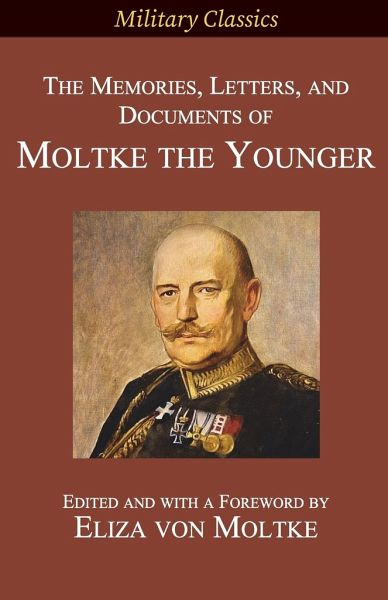
The Memories, Letters, and Documents of Moltke the Younger
Versandkostenfrei!
Versandfertig in 1-2 Wochen
26,99 €
inkl. MwSt.

PAYBACK Punkte
13 °P sammeln!
A close, intimate look at Europe's long peace and the dawn of the war that ended it. Leading the German Army at the beginning of the First World War was Moltke the Younger - an officer who had risen through the ranks to become Chief of the German General Staff during the Europe's long peace of 1871-1914. As his career developed, he spent time as a surveyor, climbing mountain trails with his uncle, Moltke the Elder, and became a close friend of Kaiser Wilhelm II. When he died in 1916, his wife was left with years of letters and documents. Originally edited and published in 1922 by Moltke's wife...
A close, intimate look at Europe's long peace and the dawn of the war that ended it. Leading the German Army at the beginning of the First World War was Moltke the Younger - an officer who had risen through the ranks to become Chief of the German General Staff during the Europe's long peace of 1871-1914. As his career developed, he spent time as a surveyor, climbing mountain trails with his uncle, Moltke the Elder, and became a close friend of Kaiser Wilhelm II. When he died in 1916, his wife was left with years of letters and documents. Originally edited and published in 1922 by Moltke's wife Eliza to redeem her husband's reputation, this is far more than a defence of German strategy. It is an intimate and personal look at the world of the European military officer during the long peace, seen through the eyes of the man who would be tasked with ending it.












